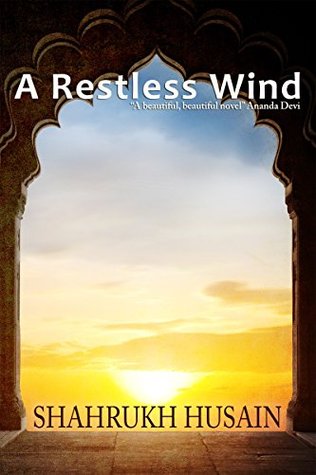A Restless Wind
Shahrukh Husain
|
|
It is interesting how the culture of the subcontinent acquires an aura of mystery and intrigue when portrayed in English. At the same time, one cannot help but feel a familiarity and connection with such writing as it is ‘our’ culture that is being written about. It is with a sense of belonging to these familiar mysteries that I read Shahrukh Husain’s A Restless Wind. These mysteries are explored in the backdrop of heightened tension between the Muslims and Hindus in Gujarat, India. The story revolves around the family of the Maharaja of Trivikrampur and the Ramzi House, who have been the royalty’s spiritual guides since ancient times. The Maharaja and his family is Hindu whereas the Ramzis are Muslims, with Sufi leanings.Zara, a successful human rights lawyer, is settled in Britain with her British husband, Peter, and working with asylum seekers from India, the “armies of the dispossessed” who are fleeing to England to escape increasing communal violence. An orphan, she was raised by her Aunt Hana, the matriarch of the Ramzi House, in the Qila, the fortress of Trivikrampur. Zara feels she cannot lay claim to any home. She cannot call Qila home as she has been away for too long and in Britain she feels like an outsider. She had wanted to go back to India but her husband had opted to stay in England and train as a psychotherapist. This adds another dimension to Zara’s state of conflict, as she feels that her marriage with Peter is stagnating. Earlier on, she and Peter had decided to move to India where they could place their skills in the service of the needy. Therefore, Peter’s decision to train as a psychotherapist feels like a betrayal to her. Pervading all else is her mother’s abandonment of her at an early age. It is with these burdens that Zara receives a communiqué from her Aunt Hana, who is now dying, entrusting her with a secret request to carry out after her death. Unable to refuse, Zara decides to go to the Qila. Husain’s narration is lucid and enables the reader to easily visualise the story. There are many instances where the portrayals of some of the characters completely engross the reader. Verses of various Sufi poems, the devotion of the domestic staff to Hana and her family, and descriptions of life at Qila further cement the ‘eastern’ atmosphere of the book. In this context, we see how the experiences of various characters have shaped them and the novel also uses flashbacks ot take us into their past. As we learn of Zara’s past, we see the enormity of what she left behind when she left for England, and better understand why she feels “stateless”. During the course of the novel we see her sense of belonging awaken and can appreciate the difficulty with which she restrains herself from “laying claim to anything to which she is not entitled.” But while the novel is successful at establishing a captivating atmosphere, the resolution of its plot disappoints. There is too much left to be resolved near the end, and the time left for the resolution is too little. One reason for this could be the introduction of too many characters and plotlines in the latter portion of the book. This also diverts from the atmosphere created initially. Hence the impact promised in the initial half of the book is not delivered in the end. Sohaib Khan | 9 Feb 2014 | Dawn
|


 Shahrukh Husain
Shahrukh Husain